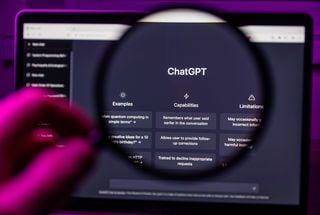What would be the impact of generative AI like ChatGPT on hospitality?
Information Technology — Viewpoint by Max Starkov
There are some important factors to consider as we navigate into an AI-lead operating model. AI does not change the problems that individuals and businesses face, but rather, it is a new way to help solve those same problems. AI will not generate revenue for a hotel. It will provide ways to increase revenue, just like the internet enabled existing revenue sources to access a hotel faster and more directly.
If the internet revolution took 15 years to fully establish itself, this next revolution will take hold even faster. Technology enables technology and so each wave will be faster than the previous. In reality, AI is already all around us and has been with us for the last 5-10 years. What we’re seeing now is AI’s ‘Amazon’ moment with the availability of a mass-market “killer app” (ChatGPT) and technology that is mature enough to be used by anyone. If you think we’re only at year 0 of the AI revolution, you’re wrong.
There are three impacts major impacts AI will have on hotel tech, including large language model (LLM) based products, that go beyond business intelligence and what we think of AI, today:
1. Guests
The role of technology has always been to commoditize a bespoke product or service, thereby allowing a new set of customers to enjoy a service that was previously unavailable or unaffordable. The Boeing 747 and the internet are among the most significant innovations in hospitality over the prior 50 years.
AI (in its multiple incarnations) will be transformative for the guest experience and the ability to accurately predict the complete spectrum of change is incredibly small. The great predictors of the 1990s would have never imagined AI-based ID verification during mobile check-in when they talked about transformations to hospitality due to “the World Wide Web.”
We can expect personalization to be an early innovation, highly adaptive, intelligent concierges for everyone that tailor recommendations regardless of the client — offering 24/7 customer support, bespoke itineraries, expert translations for all customers, and more.
2. Operators
A key role of technology within the workplace has always been to increase productivity. This occurs either by increasing individual output or by automating manual tasks. The byproduct of technical transformation is typically two-fold: shift resource skills from task-based (cut this dress pattern to higher-level; program this cutting pattern in the computer) and reduce the level of skill required overall for production; think assembly line workers versus craftsmen.
AI will bring the same types of changes to hospitality in the coming years. AI will empower smaller teams and less experienced individuals to perform at the same level as our current workforce. Generative AI can cull an entire guest history and summarize their preferences, dislikes, behaviors, and patterns: "Tell me about Mr. Lynch.” Guest insight will no longer be isolated within a few individuals' notepads and memory but can be accessible to an entire hotel’s team and adjusted for context: “Tell me about Mr. Lynch’s dining preferences” versus “Tell me about Mr. Lynch’s arrival or departure habits.” This will improve the guest experience, and in turn, assist in driving non-room revenue.
Staff-to-staff operations will also take advantage of generative AI by using on-the-fly translations allowing co-workers to communicate more effectively with each other. AI becoming the seasoned veteran that employees can go to with questions is a clear first-to-market innovation that we can expect.
3. Vendor Operations
It’s important to remember that we’re all facing an early AI innovation wave at the same time. Just as hoteliers are asking these questions, so are their individual vendors. Everything from linen service providers to guest-technology companies are looking at ways for AI to enhance their own productivity. You should expect more from your vendors as they leverage AI for their own operations: Are they using AI to augment their workforce? And is that cost savings being passed down to you?
Remember, every provider is a technology company. A vendor's ability to react to change and reorient themselves is critical to their long-term success. INTELITY is already using generative AI: our support team uses a Slack+Zendesk plugin to be able to find similar cases and summarize large multi-email threads. Our product team uses AI to draft our product stories and write release notes. Our engineering team is using AI tools to provide an extra set of eyes on internal code-reviews. We’re learning about LLM internally so we can use the technology within our own customer-facing products.
AI needs data, and the more data available the more accurate the response. There will be many business cases written about million-dollar AI implementations that failed, and I expect a common failure is that the data used to generate the desired insights simply wasn’t available to the AI model. Start thinking about how your vendors are handling your data: Do you have a system that is connected to all your other systems and offers a central hub for guest experience? Sites like Reddit and Twitter are already cutting off third-party access to their data because they don’t want someone else's AI to be trained on their data for free. Data is crucial for AI to provide value.
Good technology partners will make the technology look like magic, and hoteliers will remain experts in their craft. Just like before, you’ll want to select technology that does the work for you so that you don’t have to become an AI prompt-engineer. (That’s a job now, and it pays 6 figures ... it didn’t exist 12 months ago!)
Think about how your everyday interaction with AI will permeate your operations. Customer-centric AI will be inside your operations well before industry-specific solutions are widely adopted. Think back to the adoption of personal versus corporate mobile devices. The industry was poorly prepared for the security risks that an iPhone connected to corporate email would pose. Customers will be using AI to evaluate travel and value, and you can be prepared: Is your website accurate and does it provide specific data for the customers you’re trying to attract? Employees will (and are) already sending in resumes built with LLM generative AI assistance. Can you evaluate candidates effectively in that environment? By keeping your eyes open for these AI opportunities you’ll be able to take the lessons learned as you move forward with AI in your own operations.

 by
by 

